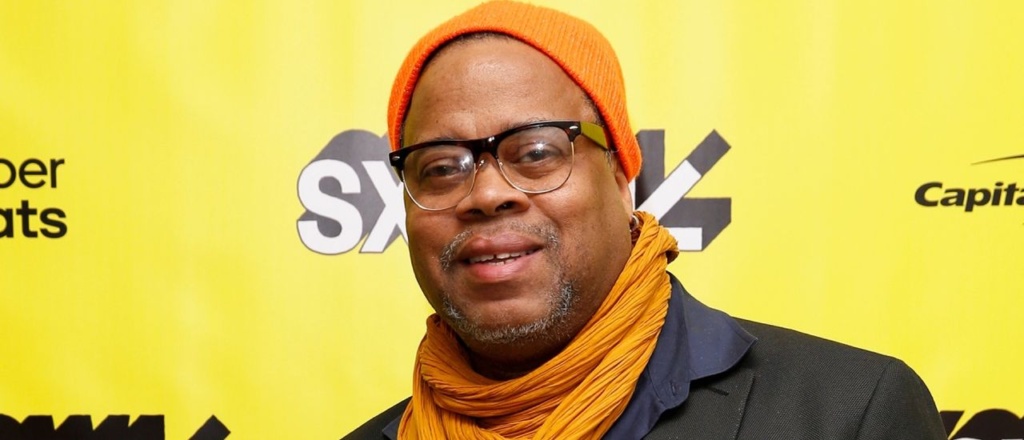Honoring Greg Tate
 Greg Tate, Groundbreaking Cultural Critic, and Black Rock Coalition Co-Founder Has Died
Greg Tate, Groundbreaking Cultural Critic, and Black Rock Coalition Co-Founder Has Died
Tate was a challenging and authoritative voice on everything from hip-hop to hardcore, and also made his own significant musical impact with projects like Burnt Sugar
Greg Tate, one of the most incisive, insightful, and influential cultural critics of the past 35 years, has died. His publisher Duke University Press confirmed the author’s death to Rolling Stone, though a cause of death was not confirmed.
“Hard to explain the impact that Flyboy in the Buttermilk had on a whole generation of young writers and critics who read every page of it like scripture,” The New Yorker’s Jelani Cobb wrote on Twitter, aptly summing up the effect that Tate’s iconic 1992 essay collection had on the world. “It’s still a clinic on literary brilliance.”
Tate was born in Dayton, Ohio, and, after studying journalism and film at Howard University, moved to New York in the early Eighties. Along with future Living Colour guitarist Vernon Reid, singer D.K. Dyson, and producer Konda Mason, he co-founded the Black Rock Coalition in 1985. The collective asserted the Black authorship of rock & roll and sought equitable treatment for Black artists across genres. “The BRC opposes those racist and reactionary forces within the American music industry which undermine and purloin our musical legacy and deny Black artists the expressive freedom and economic rewards that our Caucasian counterparts enjoy as a matter of course,” reads the organization’s manifesto, written by Tate.
“The Black Rock Coalition is shocked, saddened and absolutely devastated with the news that our brother, friend, and co-founder Greg Tate made his transition earlier today,” the group said in a statement following Tate’s death. “Greg led the wave of Black writers who, without apology, honored the past yet went full speed ahead into the future, giving dap to Black artists across the cultural spectrum who were not getting love within mainstream circles.”
Tate joined the staff of The Village Voice in 1987 and quickly established himself as a challenging, encyclopedic, and brilliantly witty voice on everything from hip-hop to hardcore and free jazz. (His first cover story was on Nigerian singer King Sunny Adé.) “Being a 25-year-old music freelancer for the Voice meant your number-one goal in life — free passes to any show at any venue in the city — was answered,” Tate wrote in a 2017 remembrance of his early days there. “But it also gave you street cred you didn’t even know you had among a wide swath of characters — club bouncers, burly Latino locksmiths from the Bronx who took your check and proclaimed themselves fans of your byline, label execs, musical icons, and rising rap stars.”
Five years later, he published the now-classic Flyboy in the Buttermilk, where he turned his critical eye on Ice-T, Ornette Coleman, Miles Davis, Public Enemy, George Clinton, and more. “Those who dismiss Chuck D as a bullshit artist because he’s loud, pro-black, and proud will likely miss out on gifts for blues pathos and black comedy,” he wrote in a 1988 piece on Public Enemy’s It Takes a Nation of Millions to Hold Us Back. “When he’s on, his rhymes can stun-gun your heart and militarize your funnybone.”
“[W]hen the Brains play hardcore it is with a sense of mission and possession more intense than that of any of the sadomasochistic Anglo poseurs who were their models,” he wrote in a 1982 appreciation of Bad Brains. “And yet, though locked into the form by faith and rebellion, the Brains inject it with as much virtuosic ingenuity as manic devotion.”
Tate’s writings paid tribute but also took his subjects to task when necessary — even when that meant questioning his literary heroes, like Amiri Baraka. “The beauty, as well as the bullshit of Baraka, has always been how eloquently he’s managed to confuse his head with the Godhead, his mental problems with the world’s ills, his identity complex with those of all black people,” reads one passage in Flyboy. And when chronicling the music he loved, he never shied away from feminist critique. “Last album PE dissed half the race as ‘Sophisticated Bitches,’ ” he wrote, calling out Public Enemy’s portrayal of Black women. “This time around, ‘She Watch Channel Zero?!’ a headbanger about how brainless the bitch is for watching the soaps, keeping the race down.”
Source: Hank Shteamer for Rolling Stone
Picture credit: Sean Mathis/Getty Images
Become a Member
Join the growing family of people who believe that music is essential to our community. Your donation supports the work we do, the programs you count on, and the events you enjoy.
Download the App
Download KUVO's FREE app today! The KUVO Public Radio App allows you to take KUVO's music and news with you anywhere, anytime!


